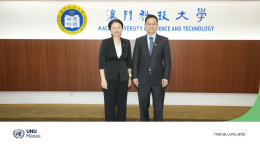Beyond Participation: Power Relations, Information Flows, and Collaboration in Water Governance: a Case of the Pra River Basin, Ghana
Effective stakeholder participation in water resources management presents both opportunities and challenges within river basin contexts. This study investigates how governance structures influence power relations, information flows and collaboration among stakeholders in Ghana's Pra River Basin. Through 41 interviews with institutional and community-level actors, including government agencies, NGOs, and community-based organizations findings reveal a centralized governance model dominated by state institutions. Despite their high interest, community-based actors remain marginalized due to a lack of clearly defined roles in water governance and weak institutional integration. The high centrality scores of state institutions highlight their dominant position in the network, where information flows primarily among them, limiting direct engagement with weaker community-based actors. This structural imbalance reduces opportunities for meaningful participation in water governance, reinforcing the marginalization of nonstate actors in decision-making. Addressing these governance challenges requires a shift towards polycentric governance models that decentralize authority ensure multi-stakeholder participation at different levels of water governance and institutionalize inclusive decision-making frameworks. This study highlights the need for more practical governance reforms to bridge the institutional disconnect between state and non-state actors within the river basin ensuring a more resilient, inclusive, equitable, and participatory water governance in the Pra Rive Basin.
Related content
Conference



